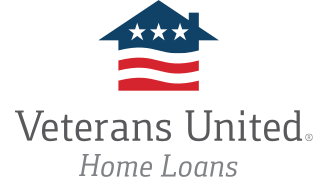Getting a VA Loan with a 100 Percent VA Disability Rating
The VA loan program offers unique benefits for those Veterans with a 100% disability rating.
The path to homeownership can be filled with complexities and nuances, especially when securing the right mortgage. For 100% disabled Veterans, there's a specific avenue worth exploring: the VA loan.
Designed by the U.S. Department of Veterans Affairs, this loan program offers distinct advantages tailored to the financial and situational needs of disabled Veterans.
In this article, we'll break down the ins and outs of VA loans, focusing on the unique benefits available to those Veterans with a 100% disability rating. From eligibility criteria to interest rates, we'll provide a comprehensive guide to help simplify the mortgage process for those who qualify.
VA Loan Benefits for Disabled Veterans
The primary benefit of a VA loan for disabled Veterans is they do not have to pay the VA funding fee. The VA funding fee is a VA loan-specific fee ranging from 0.5% to 3.3%, depending on the loan type, down payment percentage and prior usage of the VA loan.
Beyond not paying the VA funding fee, VA loans typically come with competitive interest rates, often lower than conventional rates. Second, they allow for 100% financing, meaning disabled Veterans can purchase a home without a down payment. The VA loan program also offers more lenient credit requirements, making it easier for disabled Veterans to qualify. Lastly, the program has certain limitations on closing costs, ensuring that the home-buying process remains affordable for those who've served.
Beyond program-specific benefits, many states offer property tax exemptions for disabled Veterans. Select your state here to see if your state has a property tax exemption.
Funding Fee Exemption for Disabled Veterans
For any mortgage, whether a VA loan or a conventional loan, additional fees are involved. The Department of Veterans Affairs charges a VA funding fee to cover potential losses if a loan defaults.
As mentioned above, disabled Veterans are 100% exempt from the VA funding fee. If you receive compensation for a VA service-connected disability, the VA waives the funding fee each time you use the VA loan. Surviving spouses of Veterans who passed while in service or due to a service-related disability are also exempt from the VA funding fee.
Disability Income for VA Loans
For many, VA disability income represents a significant source of cash flow, if not their entire living wage. Disabled Veterans can use this income towards their VA loan.
Including disability compensation as income can boost your debt-to-income ratio (DTI), a key factor lenders look at when determining affordability. Additionally, disability compensation is stable and reliable, meaning lenders universally accept it.
Housing Grants for Disabled Veterans
Veterans and service members with certain disabilities can get housing grants to help them buy or modify homes for better accessibility. There are three types of grants:
- Specially Adapted Housing (SAH) grant: If you have specific disabilities like losing limbs or blindness, you can get up to $117,014 in 2024. Only 120 people each year can get this grant for a certain disability after September 11, 2001.
- Special Home Adaptation (SHA) grant: If you or a family member owns the home and you have disabilities like loss of hand use or breathing problems, you can get up to $22,444 in 2024.
- Temporary Residence Adaptation (TRA) grant: If you're living temporarily in a family member's home that needs changes, you can get up to $47,130 (with an SAH grant) or $8,415 (with an SHA grant) in 2024.
You don't have to use the full grant amount in one year, but you can use it up to 6 times in your life. The grant amount might change yearly. To apply, visit the eBenefits website.
Additional VA Loan and Disability Rating Questions
Do disabled Veterans get better mortgage rates?
While disabled Veterans receive the unique benefit of not having to pay the VA funding fee, their mortgage rate has no connection with their disability status. Various factors influence mortgage rates, such as market conditions, credit score, loan amount, down payment and the lender's policies.
Can I get a VA funding fee refund if my disability rating comes in after I close on my home?
If you get VA money for a disability connected to your service, you might get a refund for the VA funding fee. But your disability pay date must be before your loan's closing date. You can't get a refund if you get a rating after your loan closes. If you believe you should get a refund, call your VA regional loan center at 877-827-3702. They're open Monday to Friday, 8 a.m. to 6 p.m. ET.


